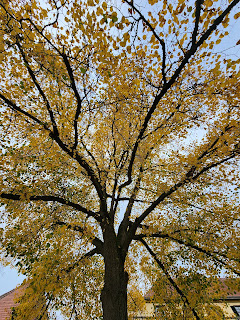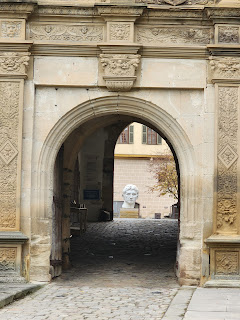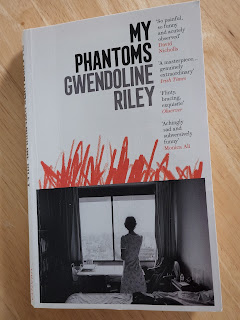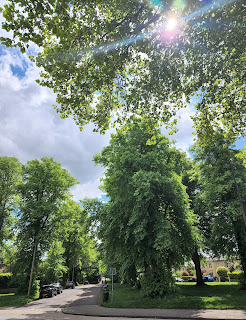Today it is five years since my brother died. At the time, my younger daughter wrote a short memoir of him for Louise Adler at Melbourne University Press. Since then the management at the press has changed and it seems that the memoir has been taken down from the MUP site. Here it is, for anyone who would like to read it:
Lucinda Higgie
There’s a W.H. Auden poem about grief that my uncle, Mark Colvin, loved. It isn’t ‘Stop All the Clocks’, the one in Four Weddings and a Funeral. He liked that one, but because Auden wrote the poem about the death of a dictator, it annoyed him when it was played straight.
No, the poem that my uncle liked was ‘Musée des Beaux Arts’, in which Auden seems to be meditating on Bruegel’s ‘Landscape with the Fall of Icarus’. Icarus only takes up a few centimetres of this painting. In fact, all we can see is Icarus’s foot, which is about to sink into the water. No extravagant displays of grief are demanded. Nobody even seems to have noticed that anything is amiss. The world goes on, oblivious and indifferent to the death that means everything to those who mourn it. Auden interprets Brueghel’s artwork as an accurate portrayal of the nature of grief.
Perhaps the poem was particularly memorable for Marko because he had been stationed for several years in Brussels, the city where the painting hangs. Perhaps, as the years went by and his ailments increased, he came to recognise the truth in Auden’s contention. And perhaps, in the work that he did as a journalist, he found a way of redressing the balance, of ensuring that at least a few of the Icarus-like falls that happen all over the world on a daily basis might get the attention they deserve from those who are ‘just walking dully along’.
What I’m sure he never imagined was that his own death would be met by anything other than the public apathy that Auden describes in ‘Musée des Beaux Arts’. Yet, within an hour of his passing, my uncle’s name was being flashed across television screens all across Australia and reports of his demise were being included in news bulletins on the radio and online as well. As a result, neither my sister nor I—we both live in England—learnt of our uncle’s death from family. Instead, we woke up to texts from friends who’d never met him but who had learned of his death from the rolling coverage. Instead of absorbing the information and digesting it from an individual perspective, by the time I left for work that day I had already read half a dozen articles about my uncle’s life, including an obituary. I had seen dozens of tweets from people who had never met him but already missed him like a friend. I had watched a beautifully edited montage of my uncle’s work put together by the ABC and saw that my uncle had not just been a member of our family but also a national treasure.
How wonderful it was to know how loved he was. Although press coverage is often construed as an invasion of privacy, the aftermath of his death has had a surreal element of camaraderie to it. It is in this spirit—my sneaking suspicion that there are people beyond my close family who might get comfort from hearing more about Mark Colvin—that I am recording some memories, which I hope will help to fill in a bit more of the picture of the kind and loveable person we have all lost.
One
There is a little film that Marko made of us children—his sons Nicolas and William and my sister Anna and me—when we visited some English cousins in Devon in the summer of 1992 or 1993. I was about three at the time, and in the film Marko interviews me about the plane flight we have just taken over from Australia, on which I’d drunk what I called ‘Coco Cola’. While he is asking me about this, I suddenly break off the interview to try to go into a tent with the older cousins, am promptly kicked out and then spend a lot of time running around a field completely in my own world. Looking back at that footage, I am struck by the way Marko always managed to make me feel as though my thoughts and ideas were worth listening to, even when I was tiny and not particularly articulate. One of the things I most appreciated about him, then and later, was that when you were with him, there was never a sense that he was looking over your shoulder, wishing for someone more interesting to come along.
Marko would never belittle or patronise me. During my school years, he would eagerly read stories I had submitted for English, completely engaging with my writing and with what I was trying to achieve. One year, I chose to go in a particularly grisly direction for a crime fiction assignment and had the character of the young child, murder her mother at the behest of a vengeful father. As part of the evidence, I wrote a diary from the child’s perspective, dropping hints to the reader about what had actually happened. When Marko let out a gasp at the end and told me that the twist had caught him by surprise, I was thrilled. He never talked down to me when I was a kid. I remember in 2003 sitting in a pub in The Rocks with him when he fixed me with that intense gaze he got when he particularly cared about something and told me the story of the Battle of Trafalgar. Being taken seriously by him, being engaged with as an equal, meant such a lot in those gawky adolescent years when I didn’t like myself very much.
And it wasn’t only a question of your ideas making you worth your salt with Uncle Marko. Just as importantly, he took your feelings seriously as well. Gaslighting is a term that has been in the media a lot over the last couple of years and it describes the act of writing off the validity of a person’s observations, emotions and overall perspective, so that they themselves begin to doubt their own worth. It is a tactic that manipulators and abusers use. I wish there was an easy antonym (fire extinguishing?) for this phenomenon; certainly a conversation with my uncle Marko when you were upset always had the opposite effect of gaslighting.
A phone call between him and me one afternoon in early 2013 illustrates what I mean. I was in that unsettled, in-between phase where university is over and the path ahead is still indistinct. I had made an ill-fated move to Sydney to study post-grad law. I “was moping aimlessly down a street in Newtown on my second evening there when Marko called to see how I was getting on. You could never fool Marko for long and after trying to put a brave face on things, I started to cry and blurted out how lonely and lost I truly was. I felt like such a twit; I had just moved to a beautiful, exciting city, yet I was utterly miserable. His response could not have been more kind-hearted. Without platitudes or bossiness, he helped me to see that it would all be all right and to picture the good future of which I had completely lost sight. He was such an excellent listener. That is one reason he was such a brilliant interviewer, I suspect. It was also part of what made him a wonderful friend. It never felt like he was just waiting for you to finish speaking so that he could say something, or half-listening to you while thinking about what his next comment would be.
Two
In 1998, a decade before the advent of Twitter, I sent my uncle Marko an email. I had just turned nine and my parents, my sister and I were six months into a posting in Budapest. I told him about our recent trip to Poland and then admonished him for forgetting my birthday, typing out about fifteen lines of ‘snap snap grrr.’ I mean that quite literally, it took me another four years to learn how to copy and paste.
That email didn’t reach Marko at first. Instead, I received a reply from an American Mark Colvin about a week later. ‘I’m very sorry I missed your birthday,’ he wrote, ‘but I didn’t know it was happening because I don’t know who you are.’ I remember Mum and her brother laughing like drains as she read this down the telephone to him in Australia.
“That first failed attempt to communicate electronically was redressed eventually. Not only did we successfully exchange emails, we became Facebook friends. Later, Marko withdrew from Facebook, incensed by their policies on privacy and various other things, but in 2007, when my dad was working in London and our family had been living there for about a year, he sent me a long message, having learned that I was hoping to study—‘read’ as some people in England like to put it—English literature and had been visiting university campuses, trying to decide where I should apply.
The message he sent me was long and thoughtful and, most importantly for me, never suggested for a moment that I shouldn’t set my sights as high as he had done:
Dear Lucy
Thank you for being my friend on Facebook. As you can see, my page is rather dominated by literary bits and pieces. This is because, like you at exactly the same age, I loved reading novels and poetry. I’ve never lost that love, and have always been incredibly grateful for the chance to go to Oxford to study English. The thing about the Oxford course is that, in my time—and I don’t believe it’s changed that radically—it chose to treat English in a historical fashion, so that the student follows the story of both the language and the literature from their origins. So you start with learning some Anglo-Saxon—don’t worry about it; for someone like you who has studied German, it’s a doddle. In the process, you gain access to some extraordinary pieces of work: Beowulf, Sir Gawain and the Green Knight, The Pearl and The Dream of the Rood. These are not properly accessible at all in modern English because the form, alliterative verse, just doesn’t work in translation. The other reason, and it’s a good one, for learning Anglo-Saxon is that it is the basic building block of present-day English. Once you have got through the Anglo-Saxon, Chaucer, who wrote in Middle English, is easy. Again, Chaucer is available in translation, and Coghill’s Penguin translation is really very good, but it doesn’t compare to reading the original.
In every way, of course, the course lets you understand how each development in English, the language and the literature, is a building on the past—or sometimes a demolition of it and starting again. You will come to understand, for instance, how we came to have standardised spelling because of the English Civil War, and the printers’ abandonment of the old rules whereby each line on the page had to be exactly the same length. This had meant almost random spelling to shorten and lengthen words to make the lines fit. In the Civil War, with vast numbers of new pamphlets being printed every day, they just chucked away that rule and started using the same spelling for a word every time.
And so it goes on, through the centuries, with the result that an Oxford English degree is almost a history degree as well.
When I wrote to him to tell him I’d decided to apply to Cambridge rather than Oxford, he might initially have been a bit disappointed. ‘Cambridge is BLOODY cold,’ he had written in a previous email, ‘and it’s only a university town with no other industry, whereas Oxford has always had lots of other industry, so Cambridge is, in a way, more like, say, Canberra.
All the same, on the grey January morning in 2008 when I learnt that I had received a place on the English course at Jesus College, Cambridge, after my mum and dad, Marko was the first person I wanted to tell.
More recently, reading Marko’s book Light and Shadow, I found a passage where he pinpoints the moment he realises he wants to study English Literature at university and I felt a shock of recognition. His experience came after a lesson on a short poem “called ‘The Sick Rose’, one of William Blake’s Songs of Innocence and Experience. The discussion, Marko writes, ‘opened the poem out, appropriately enough, like a flower’ as well as having ‘opened up every great poem [he] read from then on.’ For me the epiphany came through the poems of Tony Harrison, who wrote sonnets about his working-class parents in Leeds, his classical education at Leeds Grammar and his attempt to reconcile the two worlds he had come to straddle. Reading Harrison—most particularly ‘V’, his long poem about returning home to tend his parents’ graves, which have been vandalised by disaffected youths who, he realises, so easily could have been him—my eyes were opened to how form and subject matter could balance and counterbalance one another. Sitting in a classroom in London, as my uncle had decades earlier, I suddenly got the point of poetry. I ended up writing both my university dissertations on poets. One was on Gerard Manley Hopkins, whom Marko was a bit sceptical about—‘What is all that accented stuff about, Lucy?’ The second was on Les Murray. A few years ago, when Marko travelled to Bunyah to interview Murray, he brought me back a present—it was a copy of Murray’s latest book, On Bunyah, which had been autographed and inscribed, ‘To Lucy and the grace of Cambridge.’
While I remember many discussions about Murray—conversations about his poems ‘Animal Nativity’ and ‘Dog Fox Field’ one Christmas spring to mind particularly—and about other literary topics, the very first conversation about books that I can remember having with Marko was about Harry Potter. When I heard that my uncle had been visiting William’s primary school to read Harry Potter to the class, I wanted to know how he’d done all the voices. I particularly remember his Professor Flitwick, which was eager, staccato and very, very high pitched, but all the ones he did were so good that it’s hard to choose between them.
“Marko didn’t go quite as far as my friend who, towards the end of our degree, said, ‘I’ve read lots of Shakespeare and Milton and medieval literature now, and it was pretty good, but nothing has given me as much enjoyment as Harry Potter.’ Still, I was delighted that my clever uncle was not a snob and admired the books too. It was an enthusiasm I loved sharing with him and each time I finished a book in the series, I would ring him so that we could talk together about what I’d just read. One conversation comes to mind as an elucidation of his ability to gently suggest a new perspective. I was about nine and we were talking about Prisoner of Azkaban. I told him how annoyed I was that Harry had been distracted from pursuing the Golden Snitch during a Quidditch match because he’d taken a shine to the Ravenclaw Seeker Cho Chang. Why did the series have to introduce boring lovey-dovey stuff when adventure was so much more fun? I remember Uncle Marko replying with a gentle question about whether it didn’t perhaps make sense for characters to become interested in romance as they grew up?
Like most good children’s books, the Harry Potter stories deepen as you grow up, and it is oddly comforting, now that my uncle is no longer here, to realise that the series for which we shared an affection is, at its centre, all about death and grief. In the very first book, Harry comes across the Mirror of Erised, an enchanted mirror that shows the beholder their deepest desire; he looks into it and sees the family he has never had the opportunity to meet. J.K. Rowling explained in an interview, ‘The Mirror of Erised is absolutely entirely drawn from my own experience of losing a parent. “Five minutes, just please God give me five more minutes.” But it would never be long enough, that was the point of Chapter 10, you know.’
When I read that with no significant experience of loss, I thought it was an interesting idea. Now it speaks to me with new force. What I wouldn’t do for more “time with Marko. Five more minutes to drive to the Balmain lookout in that car full of detritus with Chops, the gentle boxer dog, on the backseat. Five more minutes to laugh at a Peter Cook and Dudley Moore sketch or David Attenborough’s footage of a sneaky, thieving penguin.
When I feel like that, there is a moment in the third instalment of the series that has helped me to begin to make peace with the loss of my uncle. In that volume, Harry thinks that he has seen his father again, despite knowing that this is impossible. He is ashamed of his wishful thinking. ‘It was stupid, thinking it was him,’ he mutters, ‘I mean, I knew he was dead.’ Here’s how Rowling has Dumbledore respond:
‘You think the dead we loved ever truly leave us? You think that we don’t recall them more clearly than ever in times of great trouble? Your father is alive in you, Harry, and shows himself plainly when you have need of him.’
Three
When my uncle died, mum got an email from our cousin Jasper in England. He hadn’t seen much of Marko but he’d always remembered him because of a visit he made to their house when Jasper was fourteen. ‘I remember very clearly … being surprised how much interest he had in us even though we were young,’ Jasper wrote. That was one of the things I also valued about my uncle—he valued young people. When we were just kids, he was happy to lark about with us at the drop of a hat. He threw himself into the spirit of things and joined in the fun, as if he were still ten himself. One example is the trip we made to the now defunct Fox Studios in Sydney, back in 1999 or 2000. We boarded an enormous fibre-glass boat for a ride called The Titanic Experience. At the point when we all had to make a dash for the life rafts, Marko lifted me clean into the air and shouted ‘I’m all she’s got!’ at the top of his lungs.
A decade or more later, when I went up to Sydney with my friend Teresa for a concert, Uncle Marko kindly let us both stay. Despite the age difference between them, my uncle went out of his way to make my friend feel at home—and soon found that they had a point of connection, as her family came from a village he had been to while filming a story on the ‘Ndrangheta mafia. He later kindly dug out his footage from the archive and sent it to Teresa so that her mother could watch it and see shots from her childhood home. Teresa was not used to being around big dogs and, difficult as this is to imagine if you have met Chops, she was nervous of him. Marko picked up on this without it even being stated and, rather than being impatient as some people would be at what they might regard as a silly fear, he showed Teresa how to put out her hand to Chops’ muzzle so that they got used to each other.
It was times like these that I often found myself thinking that, had Uncle Marko not become a journalist, he would have made a wonderful teacher. He was so patient and enjoyed explaining things that fascinated him and discussing them with you. I don’t know why, but it also seemed to me that he always retained something of his younger self into adulthood, a trace of the small boy he had once been. As a result, I regularly recall—even see—my uncle in my work as a school teacher now. The boys I teach are bright, as he was, and they are kind and funny, as he was too. The school at which I teach is less than a kilometre from Westminster School, where Marko was a pupil between the ages of thirteen and eighteen. He was happy there. Unfortunately the school that my uncle attended before that was not a nurturing place at all. He describes his experience there in detail in his book, Light and Shadow, and summarised it in an interview with Richard Fidler quite simply: ‘I went to prison for five years.’
Now that I have read my uncle’s account of his time at prep school, I find that I think of him as I watch the sweet, enthusiastic little boys that I teach—boys who rush up in the playground to tell me about the book they are enjoying or to show me a magic trick they have learnt or to ask whether I’ve finished marking their homework. When he was exactly the same age as the boys in my care, my uncle was physically, emotionally and, in my view—because Marko learnt about God from the same people who tormented him—spiritually abused by the adults who were meant to look after him. It horrifies me. While I cannot undo what happened to my uncle, I can do my utmost to make sure that the children I teach feel safe, happy and valued. I can ensure that they are never made to feel the way my uncle was made to feel.
Four
Mary-Ellen Field’s gift of a kidney to my uncle freed him from dialysis and gave him four more years of life. It was, as my uncle said in the Four Corners documentary about the process, ‘the most gracious gift you could have’. I could not be more grateful to her, especially as it was during those years that, for the first time since I was sixteen, my uncle and I were living in the same country, giving me the chance to see him more regularly than I ever had before.
Some of the best memories—and how miserable that they are just memories now, not part of a tradition that will include future events as well—are the most ordinary ones. When I came to stay, we would often drive around Rozelle to pick up various things he needed. He would park the car in a disabled spot and I would dash out to get kangaroo mince for Chops, or chocolate éclairs for the two of us, or a prescription from the chemist, or, if we were driving to granny’s that day, a lemon tart for her. Many of the businesses recognised Uncle Marko as a regular. A couple of greengrocers gave us both cups of freshly squeezed blood orange juice when they saw Marko. ‘This is for Mark, isn’t it?’ the pharmacist would ask when I said I was picking up a prescription for my uncle. She gave a fond smile when I said it was.
I felt completely relaxed with my uncle Marko. There was absolutely no need at all to put on a performance, to sing for your supper. I have a wonderful picture of one of the many moments when Chops decided to try to be my lapdog, despite the fact that he is the size of a foal. In it, Marko is laughing in the chair by the TV. Another lovely memory is another simple one—having come back from “a trip to Byron Bay, I stayed over with Marko. Lying on the sofa in Rozelle, I watched the first few episodes of Rita with him on Netflix. He cooked a delicious roast, with duck fat potatoes, and together we drank goblets of wine while laughing at the ridiculous scenarios thrown together in the Danish show about a teacher.
Whenever I stayed with Uncle Marko, I would wake up before him, find Chops’ leash—or dear old Jumbles’ before she departed this life—and we’d jog together towards Callan Park. My usual excuses about exercise evaporated, replaced by a memory of his comment to me once as he was making his slow and painful way from one room to another: ‘Never take your health for granted, Lucy.’
Of course, one of the reasons that that made such an impression is that it was very unusual for my uncle to refer to the state of his health. The phrase ‘he never complained’ is a tenacious cliché when it comes to talking about people who suffer from chronic illness, as if mentioning that you are suffering even once completely eradicates your claim to sympathy. Nevertheless, it was extraordinary how much he had to bear and how little he mentioned it. Mum used to say that she had come to realise that on his best days Marko probably felt the way we do when we have the flu. However, he didn’t dwell on it and rarely even called attention to it. I wonder now whether he just thought—perhaps correctly—that most of us simply wouldn’t be able to properly understand. Or that it was just too boring to talk about.
As far as I know, Marko was only starstruck to the point of speechlessness once. It was when he met Adam Buxton, the English comedian whose show with his friend Joe Cornish was a favourite with him and with my family. One of its many catch cries was the phrase ‘Love you, bye’, with which Buxton would sign off at the end of each show, the words spoken very quickly, as if he were already rushing away from the person he was farewelling. Marko and I would always end our telephone conversations with that same phrase—or at least I would forget and sign off automatically with ‘love you lots, bye’, and then my uncle would reply in the silly voice of the podcast, ‘Love you, bye!’ We would laugh and talk for another ten minutes after that before going through the ritual again.
I miss those telephone calls. I wish we could ring each other one last time.
Goodbye, Uncle Marko. I loved you and I miss you so much already.
‘Love you, bye.’





































.jpg)






